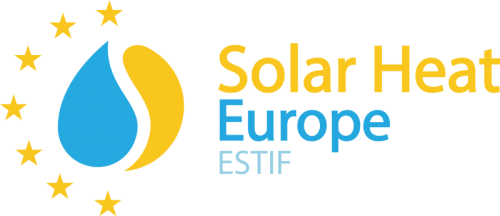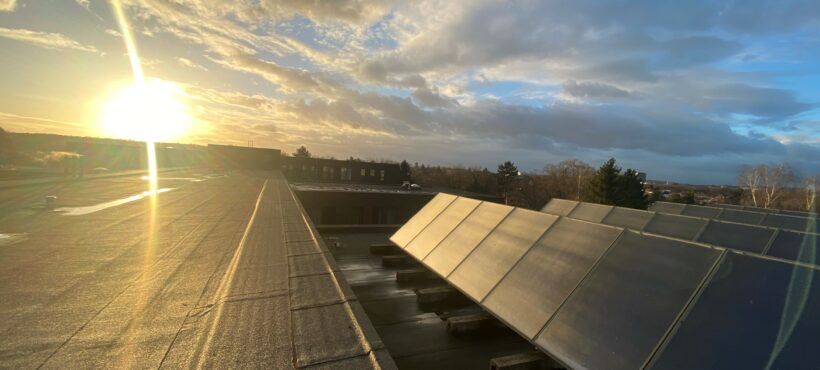Brussels, September 15th – Solar Heat Europe (SHE), the voice of the solar heating and cooling sector, welcomes the vote of the European Parliament on the proposal to amend the Renewable Energy Directive, in particular the higher ambition for renewable energy and renewable heating and cooling, stressing the need to combine this ambition with binding targets.
The increase of the target for the overall share of renewables to 45% and the share of renewables in the heating and cooling sector to annual increases of 2,3 percentage points are important developments, as well as the introduction of sub-sectoral targets for industry and buildings.
At the same time, the current energy crisis demands more ambition in making some of these targets binding and we urge Member States to act accordingly during the upcoming Trilogue negotiations so that we can deliver on the objectives of the European Green Deal, and the Paris Climate Agreement.
Headline target (art. 3)
In May 2022, as part of the REPoweEU plan to address the ongoing energy crisis, the European Commission wisely proposed a further increase in the renewable energy target for 2030, from the 40% proposed in July 2021 to 45%.
SHE strongly supports the Commission proposal and the Parliament’s decision to vote in favour of the 45% target and introduce three new indicative targets:
- 5% of new renewable installed capacity by 2030 should come from innovative technologies.
- Member States shall set an indicative target for storage technologies.
- 5% reduction of peak electricity demand by 2030.
Solar heat contributes greatly to all these objectives. First, it provides innovative solutions for buildings and industry, especially in the fast-growing market for large-scale installations. Second, it offers unparalleled storage capacity, as every solar thermal system integrates thermal energy storage by default; with more than 10 million solar thermal systems installed in European households, accounting for over 180 GWh of thermal energy storage, solar heat can increase demand-side flexibility today, without deepening Europe’s strategic dependencies. Third, in addition to the storage capacity, solar thermal provides a fully renewable and more efficient source of energy for heating and cooling, which reduces peak electricity demand.
H&C target (art. 23)
In the same vein, we welcome the higher ambitions for the heating and cooling sector, with an indicative target for an annual increase of 2.3 percentage points in the share of renewable energy by 2030. Nonetheless, we want to stress that making this target binding would boost its effectiveness.
Heat represents half of Europe’s energy consumption and today is dependent on fossil fuels, first and foremost Russian gas. With long-established and competitive solutions like solar thermal technologies, the decarbonization of heating is not only possible but also essential to achieve EU climate, industrial, and strategic objectives. Currently, the main obstacle is the lack of strong political support, hence we call on the Council, the Parliament, and the European Commission to take bold and decisive actions to unleash the full potential of renewable heat.
Buildings & industry (artt. 15a & 22a)
Finally, despite the non-binding nature, we appreciate the Parliament’s vote in favour of indicative sub-targets for buildings (49% of the energy consumption covered by renewables by 2030) and for the industrial sector, where the Parliament introduced a significant increase compared to the Commission’s proposal, from an annual increase of 1.1 percentage points in the share of renewables to 1.9.
In particular, Solar Heat Europe wants to stress the specific reference to low and medium temperature industrial processes, where solar heat and other renewables already offer a viable alternative to fossil fuels. According to the text voted in plenary, Member States shall endeavour to increase the availability of economically viable and technically feasible renewable alternatives to fossil-fuel based energy use for industrial heat applications with the aim of ending the use of fossil-fuel based for applications requiring maximum heating temperatures up to 200 degrees Celsius by 2027 at the latest.
***ENDS***
About Solar Heat Europe/ESTIF
Solar Heat Europe/ESTIF’s mission is to achieve the prioritisation and acceptance of solar heat as a key element for sustainable heating and cooling in Europe and to work for the implementation of all necessary steps to realise the high potential of solar heat. With members in more than 15 European countries, Solar Heat Europe represents directly or indirectly over 90% of the industry, across the value chain. Solar Heat Europe published in June 2022 a solar thermal roadmap: Energising Europe with Solar Heat.
About Solar Heating and Cooling
Solar thermal offers key advantages that makes it essential to the solution of this crisis:
- It directly converts solar energy into thermal energy, so it is decoupled from electricity prices.
- It is 100% renewable energy, not being dependent on the carbon content of the electricity supply, so it does not jeopardize the European decarbonization strategy.
- It is a long-established and competitive solution, with a strong European industrial base that supplies the large majority of the European market and is a net exporting sector.
- It does not require critical minerals and most of the components are widely available via several supply channels; while trying to contain the damages of a dangerous strategic dependency on Russia, it is crucial that Europe does not establish other strategic dependencies, notably with China.
Contact:
| Pedro Dias
Secretary General Tel: +32 2 318 40 55 |
Alexandra Sutu
Communications and Events Officer alexandra.sutu@solarheateurope.eu Tel: +32 474 94 09 81 |


Leave a Reply